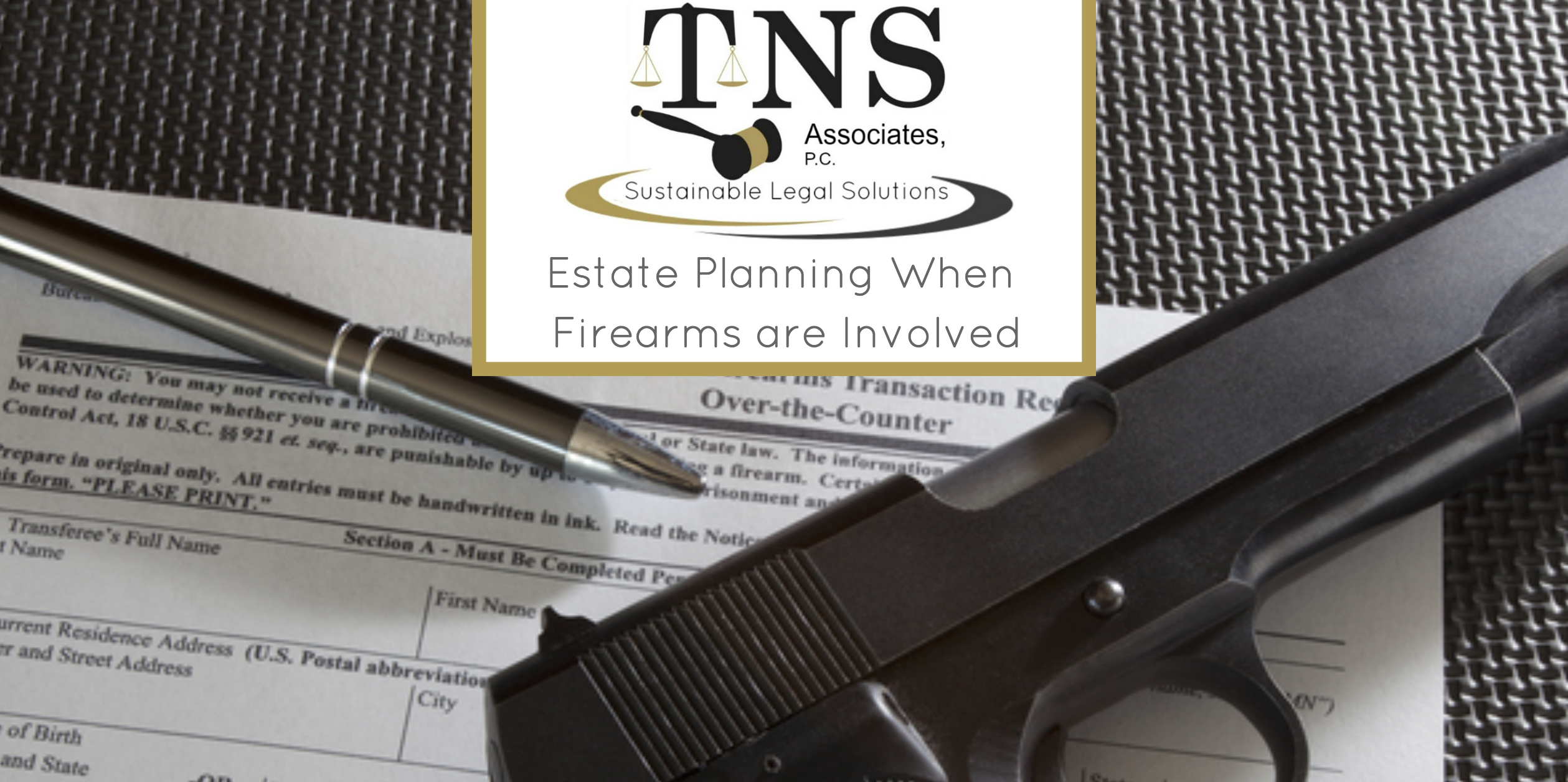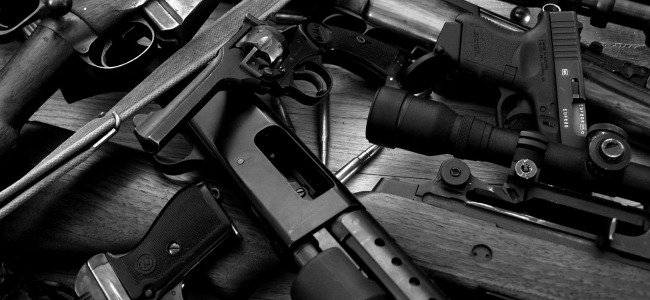Estate Planning When Firearms are Involved

The sale and transfer of firearms has become an increasingly convoluted area of law for citizens to navigate. With an intricate web of state and federal laws and regulations, it has become alarmingly easy for law-abiding citizens to stumble into conflict with those laws. This has become an issue with regard to estate planning as well. Many clients wish to leave firearms to adult children or friends, but doing so may require extra planning. Below are some of the common considerations that people should take into account before attempting to leave firearms to loved ones:

Don’t go it alone: In an increasingly “do it yourself” culture, fueled by readily available information (and misinformation) on the internet, it is common for people to attempt to order their affairs by themselves. In a broad sense, many people have been attempting to draft their own estate plans, and there have recently arisen many attorneys and “experts” who are selling so-called “NFA Gun Trusts.” Typically these trusts are offered for a small fee, and purport to circumvent certain federal Alcohol, Tobacco, and Firearm regulations. The issue, however, is that if the trust doesn’t work, the attorney is nowhere to be found, and the client is facing criminal liability. Further, many of these trusts do not take into account Colorado’s unique state laws concerning transfers and magazine limits. Due to the potential for criminal liability, and prosecutorial zeal to take on firearms cases, it is the epitome of “penny wise, pound foolish” to purchase $100 planning and expecting it to be protective of rights. By way of analogy, would you buy a $100 parachute, or try to make your own, before going sky-diving?
Be careful who you transfer to: Generally, under Colorado law, all transfers must be done through a licensed firearms dealer, which includes a background check on the person to receive the firearm. There are exceptions to the law that allow the owner of the firearm to transfer to an immediate family member (which extends to grandparents, nieces, nephews, aunts, uncles and first cousins), and transfers that happen by “operation of law” or through a valid will or testamentary trust, among other exceptions. However, it is also important to remember that only persons over eighteen years old can own rifles and shotguns, and only persons over twenty-one can own handguns. Further, federal law prohibits any person who has been charged with a felony, the misdemeanor of domestic abuse, or even a person that uses recreational or medical marijuana, from owning a firearm, to name just a few of the many disqualifying classifications. Thus, it is very important for a person, and their personal representative, to know who is receiving the firearms, and to comply with the law when dealing with beneficiaries.
Be careful what you transfer: Under Colorado law, it is illegal to possess, transfer or receive a magazine that is considered “high capacity” (i.e. holding more than fifteen rounds of ammunition). While any such magazines that were owned prior to July 1, 2013 are “grandfathered” and are exempt from the statute when in the possession of the owner, there are issues when trying to leave such property to loved ones. It may be legal to transfer the firearm itself, but not the high capacity magazines, making ownership by a family member of the firearm tricky when reduced capacity magazines are unavailable. However, interestingly, there is not a reliable enforcement or reporting mechanism in place by which the state is able to track ownership or transfers of such magazines. While magazines are required to bear a date stamp, magazines owned prior to July 1, 2013 that have been grandfathered in do not bear such a stamp, nor do magazines purchased in other states. Still, it is far better to tread carefully
In conclusion, when dealing with firearms laws and regulations, misunderstandings abound. It is never a good idea to attempt to read and interpret law without some deeper understanding of how the laws and regulations work. At best, a person can be fined a few hundred dollars, and at worst can spend several years in prison. If a person has any question in their mind as to how to approach the transfer of their firearms, they should consult with an attorney.
Thank you for taking the time to read our blog.
#attorney #EndofLife #endoflifeattorney #Endoflifelaw #endoflifelawyer #EstatePlan #EstatePlanning #LastWill #LastWillandTrust #Law #Lawyer #Trust #Will
